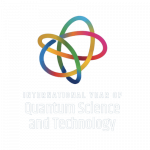Resilient Global Food Supply
Improving sustainability of global food systems by making them more resilient to climate change through a quantum optimisation solution that would reduce food transport costs and emissions.
OWNER

STATUS
Phase 1 – Outline
QUANTUM APPROACH
Optimisation
SDGs
CONTRIBUTORS
Ernst & Young
ForeQast
University of Oxford
QUANTUM APPROACH



IMPACT/ CONTEXT
Climate change has a very strong impact on food systems, exacerbating hunger and malnutrition issues, especially in regions that are already vulnerable. Food systems are complex networks of activities, actors, resources, and environments encompassing the production, processing, distribution, consumption, and disposal of food products. Comprehending these networks is arduous as they are constantly evolving, and are interconnected with broader social, economic and policy systems.
Food systems also contribute significantly to climate change. While the production of food is a large contributor, greenhouse gas emissions associated with food transport also keep increasing. Both the UNFCCC and the FAO are working not only towards climate-resilient and low-emission agricultural practices, but also acknowledge the considerable potential to maximise co-benefits of adaptation and mitigation of food global supply chains.
HOW QUANTUM COULD HELP
The Oxford Programme for Sustainable Infrastructure Systems studies resilience of the global food supply. It looks at large-scale freight allocation models. The lack of detailed models currently limits the ability to capture the complexity of food supply from field to consumer. In fact, most of the global analyses do not even do any form of transport flow optimiaation. None of the global freight flow allocation models can solve multiple objectives within a common framework.
This optimiaation problem is computationally hard, making large-scale optimisation (e.g., many ports, various tariffs, many consumer segments, many objectives, etc.) challenging with classical computers and algorithms, as they would require exceedingly long computational time to reach a good approximate solution. Quantum algorithms hold promise to significantly enhance the quality of the solution to these optimization problems and represent therefore an ideal use case. Quantum computing could therefore potentially help navigate these challenges by providing a more detailed and real-time understanding of food systems.




